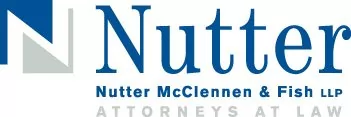ERA OF THE GANTS COURT BEGINS
On July 28, 2014, Ralph D. Gants was sworn in as the Chief Justice of the Massachusetts Supreme Judicial Court (SJC). Chief Justice Gants had been appointed a Justice of the SJC in 2009, and for twelve years before that had served as an Associate Justice of the Superior Court. For many years, Chief Justice Gants has distinguished himself with his integrity, intelligence and dedication. The Massachusetts judiciary is fortunate to have him as Chief Justice.
SJC CURTAILS RIGHTS OF PROPERTY OWNERS
Glovsky v. Roche Bros. Supermarkets, Inc., 469 Mass. 752; 2014 Mass. LEXIS 791 (2014).
Steven Glovsky wanted to be elected the Governor's Council member from District 2. Glovsky sought to solicit nomination signatures outside the entrance to a standalone supermarket in Westwood owned by Roche Bros. He was told that Roche Bros. prohibits such activity. Glovsky filed an action claiming that the supermarket had violated his right to equal ballot access secured by article 9 of the Massachusetts Declaration of Rights. The majority of the SJC held that the complaint stated a claim for declaratory relief that a candidate for public office has a state constitutional right to solicit nomination signatures on the private property of a stand-alone supermarket.
Justice Cordy wrote a compelling dissent. He noted that, prior to this case, the balancing of an individual's right to solicit and the landowner's right to use his property for commercial endeavors without such interference turned on the established distinction between a shopping mall which is intended to be the functional equivalent of a traditional downtown and a stand-alone store that is not. Justice Cordy criticized the majority's departure from this functional equivalence test applied in its carefully reasoned precedent, Bachelder v. Allied Stores Int'l, Inc., 388 Mass. 83 (1983). This test had commanded "the overwhelming national consensus on the proper balancing of rights where a limited right to solicit signatures on private property is recognized." Justice Cordy added: "By failing to recognize the enormous differences between large shopping complexes that duplicate traditional downtown functions and free-standing stores selling multiple products, the court completely undoes the intended balance between the rights of property owners and the rights of those whom they invite to use their property, and creates serious consequences for property owners who miscalculate their obligations despite their best intentions."
The opinion seems to suggest there was a real need for Glovsky to be able to solicit signatures at this particular location. It states that Westwood was near the geographic center of District 2; that the Roche Bros. store is the only supermarket in Westwood; that Westwood's population was 14,330; and that "[i]n many rural and suburban communities, the local supermarket may serve as one of the few places in which an individual soliciting signatures would be able to approach members of the public in large numbers." It reads as if the Court thought Glovsky needed to obtain all of his nomination signatures in Westwood. Of course, that was not the case. Glovsky needed 1,000 signatures of registered voters from anywhere in District 2. Indisputably, he would have had "reasonable access to the public" without seeking signatures at the Roche Bros. supermarket in Westwood. As was pointed out in the amicus brief filed by the New England Legal Foundation and six other amici, District 2 is "a sprawling irregularly shaped area comprising all, or parts of, thirty-nine cities and towns spread across five counties." Furthermore, amici noted, District 2 is home to at least five malls with an average of 150 stores each. Finally, the majority seemed to ignore or at least dismiss the physical differences between malls and stand-alone stores. The former have numerous entrances and exits and individual stores from which customers spill out into large areas designed for pedestrian traffic. By contrast, a stand-alone supermarket, for obvious security purposes, aggregates its check-out cashiers in one area that must be transgressed before exiting, limits the means of egress to a small area behind the cashiers, and provides exit doors, usually automatic, that require customers to pass through in single file and empty into small areas not conducive to congregating.
RECENT DEVELOPMENTS IN EMPLOYMENT LAW
New Massachusetts Statute Requires Employee Notification of Domestic Violence Leave Rights
On August 8, 2014, Massachusetts enacted an emergency law requiring, among other things, that employers with fifty or more employees notify each employee of substantial, newly created rights and responsibilities relating to domestic violence leave. G. L. c. 149, § 52E. This statute thus creates a need for immediate action by covered employers.
The new law requires that covered employers permit their employees to take up to fifteen days of leave from work in any twelve-month period whenever the employee or the employee's family member is a victim of abusive behavior and the leave is used to (a) seek or obtain medical attention, counseling, victim services, or legal assistance; (b) secure housing; (c) obtain a protective order from a court; (d) appear in court or before a grand jury; (e) meet with a district attorney or other law enforcement official; (f) attend child custody proceedings; or (g) address other issues directly related to the abusive behavior against the employee or family member. Employers have sole discretion to determine whether such leave will be paid or unpaid. Also, employers can require that an employee exhaust all annual, vacation, personal, and sick leave before requesting or taking domestic violence leave.
SJC Set to Review Legality of "No-Tipping" Policy
Briefing has been completed and the SJC has scheduled oral argument for its December 2014 sitting in a case presenting the issue: "Whether an employer may, consistent with G. L. c. 149, § 152A, impose a no-tipping policy at his establishment, effectively discouraging patrons from leaving tips for his wait staff employees and prohibiting the employees from accepting tips." Section 152A subjects an "employer" of a "wait staff employee," a "service employee," or a "service bartender," who does not obey that section's rules regarding "tip[s], to civil and criminal penalties." (Terms in quotation marks are defined in the statute.)
The case is Meshna v. Scrivanos, SJC-11618. The plaintiffs are employees at independently-owned and operated Dunkin' Donuts franchise stores. The employees allege that the defendant-employers are violating § 152A by (1) instituting a no-tipping policy, and (2) retaining for themselves those "tips" that are left in violation of the stores' policy. Judges Fabricant and Billings, sitting sequentially in the Business Litigation Section of the Superior Court (BLS), ruled that a no-tipping policy is not a per se violation of the statute, but found that triable issues of fact remained about whether the defendants improperly retained tips left by customers for wait staff. The court observed that the legislative intent behind § 152A is to ensure service employees receive tips intentionally left for them. Thus, while an outright ban on tipping may not be inconsistent with the legislative intent, employers' retaining the tips left for employees in violation of the stores' policy may be. After ruling on potentially dispositive motions, the BLS reported the case to the Appeals Court. The SJC granted the plaintiff-employees' petition for direct appellate review.
ON THE "CUTTING EDGE" OF TRADEMARK LAW
In Cutting Edge Solutions, LLC v. Sustainable Low Maintenance Grass, LLC, No. 3:14-cv-02770-WHO (U.S.D.C. N.D. Cal. Oct. 20, 2014), the federal district court in San Francisco denied plaintiff's request for a preliminary injunction. Cutting Edge Solutions, LLC, a seller of plant fertilizers and nutrients, sought to enjoin Sustainable Low Maintenance Grass, LLC (SLMG) from using the trademark "Cutting Edge" on a state of the art grass seed mix. The court's opinion denying relief comprehensively discusses the proof required to show trademark infringement and the proper application of the standards for a preliminary injunction in a trademark case. Beyond this, the opinion teaches three important lessons. First, the difficulty of obtaining preliminary injunctive relief increases in proportion to the time between when a plaintiff should have known of the alleged infringement and plaintiff's request for injunctive relief. In this case, for example, the judge found that plaintiff should have known of the alleged infringement eighteen months before it filed suit, a factor that weighed heavily against the grant of the injunction. Second, unsupported allegations of harm will not secure injunctive relief. In this case, plaintiff claimed generally that the alleged infringement would injure its good will and result in loss of control over its reputation, but it did not back up those general claims with any specific supporting evidence. Third, enjoining a defendant will be difficult in the absence of a persuasive showing that consumers are likely to be confused by defendant's use of the mark. It is not enough to allege that the goods of defendant and plaintiff are related in some fashion. Concrete evidence is needed to show that plaintiff's potential customers would likely encounter defendant's product in the marketplace and would likely be confused upon seeing defendant's mark. In this case, there was no showing of overlap in the marketplace and no showing of actual or likely confusion. We also note that these lessons are interrelated: the longer the time defendant has used the mark without actual confusion, the stronger the inference that there is no likelihood of confusion in the future.
Nutter represented the prevailing party in this case. The Nutter team was led by Kenneth Berman, Co-Chair of Nutter's Business Litigation practice group, supported by partners, Peter Baylor, Heather Repicky, Eric Magnuson, and by associates, Joseph Toomey, and Andrew McArdell.
EMERGING ISSUES IN PRODUCTS LIABILITY LAW
Food Fight Over GMO Continues
Consumer groups and segments of the food industry continue their battle over the labeling of food containing genetically modified organisms (GMO), sometimes referred to as genetically engineered food (GE). No national policy has emerged as neither the U.S. Congress nor the Food and Drug Administration has acted. Individual states have stepped into the vacuum, and a majority of states have the issue on their legislative agendas.1
The New England states have been particularly proactive on the issue of labeling of foods made with GMOs. In May 2014, Vermont (Vt. Act 120) became the first state to require labeling of such food. The Act was challenged by the Grocery Manufacturers Association (GMA). The GMA alleged a First Amendment violation because the law "compels manufacturers to use their labels to convey an opinion with which they disagree, namely, that consumers should assign significance to the fact that a product contains an ingredient derived from a genetically engineered plant." The GMA also alleged that the statute is unconstitutionally vague, violates the dormant Commerce Clause, and is preempted by federal law. Grocery Mfrs. Ass'n v. Sorrell, No. 5:14-cv-00117-cr (June 12, 2014 U.S.D.C. D. Vt.).
The Vermont Attorney General moved to dismiss the complaint. Subsequently, the GMA moved for a preliminary injunction and to amend its complaint. In early October, the Court adopted a briefing schedule for the pending motions, with oral argument expected to be held on December 18 or 19, 2014.
Connecticut (Conn. Gen Stat. § 21a-92, Dec. 2013) and Maine (22 Me. Rev. Stat. c. 565, Jan. 2014) have also enacted legislation addressing GE foods. Neither statute will become effective, however, until a number of contiguous states have enacted similar legislation.
In Massachusetts last year, House Bill No. 3996, the "Genetically Engineered Food Right to Know Act," was introduced. The proposed legislation was similar to that of the other New England states. Its proponents claim they had the support of a majority of the members of the House, but the bill did not come to a vote before the end of the legislative session on July 31, 2014. Proponents have promised to pursue this legislation in the 2015–2016 legislative session.
Finally, legislation has also been introduced in the Rhode Island legislature to require labeling of food containing GMOs.
Ten Tips for Managing International Mass Tort Litigation
Companies and the lawyers defending them in products liability litigation have seen an increasing number of such cases become international in scale. Here are some tips from two of our lawyers who have engaged in such litigation for a number of years.
- Note the Differences between Common Law and Civil Law Systems. In common law countries lawyers look to judicial decisions to state the rule of law. In civil law countries lawyers look to codes and statutes which are designed to cover all possible contingencies, and judges have a more limited role in deciding the law. Civil law judges act in an investigatory capacity, as opposed to common law judges, who act as arbiters between adversarial parties who present their own arguments. Approximately 180 countries operate under the civil law system.
- Learn the Rules of Pretrial Discovery. Pretrial discovery in common law countries varies practically and philosophically from that in civil law countries. The latter view evidence gathering as a task for a sovereign or judge, and restrict the ability of private litigants to discover information outside the direct supervision of the tribunal. Some countries, such as France, so vehemently disagree with U.S. discovery rules that they have enacted statutes to prevent application to their citizens.
- Understand Data Protection Rules. U.S. rules permitting broad discovery of documents conflict with European data protection laws, and the EU believes U.S. rules lacks adequate data protection. Thus, EU countries will not readily release personal information to U.S. parties. There are workarounds such as The Hague Convention on Taking of Evidence Abroad in Civil and Commercial Matters, but only about 30 countries will enforce this Convention.
- Appreciate the Differences in Preparing and Presenting Expert Witnesses. Identifying, preparing, and examining expert witnesses varies in different jurisdictions. In contrast to the U.S. adversarial system, in many foreign jurisdictions experts often play a neutral role as independent experts. Ethical rules in foreign jurisdictions may regulate differently the formation of the attorney-expert witness relationship, the process for reviewing expert reports, and even the conduct of the experts themselves.
- Recognize the Impact of Procedural Differences. One example relevant to mass tort litigation is class action certification. U.S. plaintiffs attempting to bring a class action face a rigorous certification process. And the necessity of evidence of individual damages may defeat class certification. By contrast, in Canada, plaintiffs may face much lower, more favorable standards for class formation, and class certification will not be denied on the grounds that each member of a class has individual damages.
- Attorneys' Fees and Contingent-Fee Agreements. The American rule, under which each party pays its own legal fees, is in stark contrast to the British rule, under which the loser generally pays the legal fees for both parties. Moreover, although contingency-fee agreements are commonplace in the U.S., such arrangements have traditionally been prohibited in European countries. However, that may be changing, as countries such as Sweden, Germany, and England, recently have modified their litigation rules to allow attorneys to be paid out of their clients' damage awards.
- Effective Communication Among an International Legal Team Requires Awareness and Effort. First, counsel must master the time zones, which is not as simple as remembering that Los Angeles is three hours behind New York. For example, India Standard Time is on the half hour. Some countries do not recognize Daylight Savings Time. In addition to being aware of the time differences, be alert to the impact this will have on schedules and deadlines by keeping attuned to "the time float" and the narrow windows in which to work jointly.
- Use Technology to Facilitate Oral and Written Communication. Enhance oral communication by the use of online meeting technology, web conferencing, and videoconferencing applications. Even if all counsel speak English well, accents can be difficult to understand over some telephone lines. Facilitate written communication by living in the cloud. Early on in the litigation, set up extranets and other cloud-based document sharing systems. E-mail may be adequate for basic communication, but some electronic files may be too large to be convenient attachments to emails or even so large that they will be blocked by spam filters.
- Manage the Message. Inevitably international mass tort litigation in different jurisdictions will proceed on different tracks. The Internet and social media facilitate instant international communication of trial, settlement or other significant case events. But the meaning of these events may be different in different countries, or may be misinterpreted between or among international parties by the media, or may be manipulated by adverse parties for their local advantage. The true meaning of events and the actual facts must become part of regular information sharing among counsel.
- Strive for Cultural Competence. "Cultural competence" is the ability to interact effectively with people of different cultures; it requires individuals to confront biases, avoid indulging in stereotypes, and appreciate the value of differences. Cultural competence also requires appreciation of non-verbal communication and recognition that nonverbal communication may have a heightened importance in international and intercultural matters. Even one who expects differences in legal rules, courtroom procedures, and certain business practices may forget the importance of understanding basic cultural differences which, if ignored, may impede effective working relationships.
This summary was adapted from an article by litigation partners, David Ferrera and Dawn Curry, of the Product Liability and Toxic Tort Litigation practice group, that appeared in DRI's For the Defense, "What to Do When Your U.S. Mass Tort Goes International" (Sept. 2014).
PARADOX AND SENTENCE FLUENCY IN THE FIRST CIRCUIT
Catch-22: Paradoxical Problems
Debnam v. FedEx Home Delivery, No. 13-2335 (1st Cir. Sept. 8, 2014)
In Debnam, plaintiff's complaint asserted wage payment claims that can only be brought by an employee against an employer. Plaintiff's complaint also asserted an unfair business practice claim under Mass. Gen. Laws c. 93A, that cannot be brought by an employee against his employer as such.
FedEx moved to dismiss the 93A claim because plaintiff had alleged he was an employee of FedEx and 93A is not applicable to the employer/employee relationship. This motion was allowed. The plaintiff made no attempt to amend his complaint.
After discovery, FedEx moved for summary judgment contending the undisputed facts established the plaintiff was not an employee under the wage law. The motion for summary judgment was allowed. On appeal, the First Circuit affirmed.
Kimmel & Silverman, PC v Porro, No. 02-505-14 (U.S.D.C. D. Mass. Sept. 30, 2014)
In Kimmel, plaintiffs alleged that defendants had breached the confidentiality provision of a Settlement Agreement that concluded Lawsuit 1. That Agreement prohibited the parties and their lawyers from disclosing information regarding the facts leading to the settlement. Plaintiffs alleged the breach occurred when in the course of Lawsuit 2 the lawyers from Lawsuit 1 disclosed the confidential information. Defendants did not deny the disclosures, but moved for summary judgment on the ground that the absolute litigation privilege shields them from liability. They argued that all of their challenged conduct was carried out by attorneys in the course of litigation, including the attorneys' statements and their filing in Lawsuit 2 confidential deposition transcripts and emails from Lawsuit 1.
Plaintiffs argued that defendants cannot be permitted to hide behind the litigation privilege in light of their contractual confidentiality obligations. The court rejected this argument, noting that Massachusetts had not carved out an exception to the absolute litigation privilege for breach of contract claims against an attorney. "Courts that have addressed the question directly have ruled that the litigation privilege does not yield to a litigant's obligations under a pre-existing contract."
Opinions With Intriguing Opening Paragraphs
Vander Luitgaren v. Sun Life Assurance Company of Canada, No. 13-2090 (1st Cir. Aug. 26, 2014)
"Our system of justice is precedent-based. Once we have decided a legal question and articulated our reasoning, there is usually no need for us to repastinate the same soil when another case presents essentially the same legal question. So it is here." (Footnote indicating there are exceptions to the "law of the circuit" rule omitted.)
HELD: Insurer may pay death benefit under ERISA by establishing a retained asset account when the plan documents specify that method of payment, or provide that the insurer may pay other than by a lump sum benefit.
Pinpoint It Services, LLC v. Rivera, Chapter 7 Trustee of Atlas It Export Corp., No. 13-9003 (1st Cir. Aug. 4, 2014)
"This is a bankruptcy case, though the parties go at it like a couple of bare-knuckle brawlers, hurling a barrage of arguments (and trash talk!) at each other at every turn. We need not jump too deeply into the fray, however, because we lack jurisdiction over the appeal. We will explain our holding— which makes new law for this circuit—shortly."
HELD: Order denying relief from the automatic bankruptcy stay is not appealable.
ONE FOR THE FEDERAL BENCH: ALLISON D. BURROUGHS
President Obama has nominated our partner, Allison Burroughs, to serve on the United States District Court for the District of Massachusetts. The White House announced the nomination on July 31, 2014. Allison's confirmation hearing was held before the Senate Judiciary Committee on September 17, 2014. A favorable vote by this Committee would place Allison's nomination before the full Senate for confirmation.
Allison is a partner in Nutter's Litigation Department, and a member of the Government Investigations and White Collar Defense practice group. Prior to joining the firm she served as an Assistant United States Attorney in the Eastern District of Pennsylvania and subsequently in the District of Massachusetts. Allison is a graduate of Middlebury College and the University of Pennsylvania Law School.
OCTOBER WAS PRO BONO MONTH
Nutter's commitment to pro bono legal work remains strong.
- The National Association of Pro Bono Professionals presented its 2014 William Reece Smith, Jr. Special Services to Pro Bono Award to Mary Ryan. Mary is the Chair of the ABA's Standing Committee on Pro Bono and Public Service.
- The Lawyers' Committee for Civil Rights and Economic Justice presented its 2014 Outstanding Leadership and Service Award to Daniel Gleason. Dan has been involved with the Lawyers' Committee for over 35 years, serving on the Board of Directors and Executive Committee, as both a member and chair.
- The Victim Rights Law Center presented its 2014 Shining Star Award to Jonathan Allen.
- The Boston Bar Association's Public Interest Leadership Program selected Rory Pheiffer as a Fellow for 2014- 2015. John McBrine and Shagha Tousi had served as Fellows in prior years.
- The Veteran's Consortium Pro Bono Program has recognized Nutter for its quantitative and qualitative outstanding work on behalf of unrepresented veterans or their family members who have filed appeals with the U.S. Court of Appeals for Veterans Claims.
- The Medical-Legal Partnership | Boston named Nutter the recipient of its 2014 Excellence in Partnership Award.
- The Supreme Judicial Court Standing Committee on Pro Bono Legal Services named Nutter to its 2013 Pro Bono Honor Roll.
- Nutter, a founding member of the Pro Bono Institute's Law Firm Pro Bono Challenge®, certified to the Institute that Nutter had once again in 2013 met the challenge of spending at least 3% of the firm's paying client billable hours on pro bono work.
RECENT PRESENTATIONS
2014 American Bar Association Magnitude 360 Annual Meeting
Kenneth Berman co-chaired the ABA Litigation Section meeting at the ABA Annual Meeting;
Mary Ryan was a co-presenter at the ABA Pro Bono Publico Awards Luncheon; and
Nutter was a co-sponsor of the annual conference.
3rd Annual Corporate Counsel Institute at Suffolk Law School
David Rubin presented on "Drafting Tips for Employment Agreements: Compensation, Competition and Confidentiality."
Massachusetts Bankers Association
Liam O'Connell presented on recent developments in employment law.
NE Environmental Business Council—"Ocean and Coastal Resources Program on Shoreline Resiliency"
Mary Ryan led a panel discussion covering regulation, operations, nourishing beaches, and reinforcing bulkheads and infrastructure along the coast of New England.
TechLaw Fall Meeting in Copenhagen
Nelson Apjohn was a panel member and presented on "What to Do When Getting Sued in the U.S."
Sergeant Shriver National Center on Poverty Law— "National Law and Policy Dialogue: Economic Opportunity and Justice: The Next 50 Years"
Christopher Lindstrom hosted a panel discussion with
Carol Ashley, Vice President of Advocacy, at the Sergeant Shriver National Center;
Rahsaan Hall, Deputy Director of the Lawyers' Committee for Civil Rights and Economic Justice;
Theodore Shaw, Julius L. Chambers Distinguished Professor of Law and Director of the Center for Civil Rights at the University of North Carolina School of Law.
Association of Corporate Counsel and Boston University Executive Education Program— "Risk Management & In House Counsel"
Ian Roffman presented on "Government Investigation Risk: Examining Internal and External Investigations."
Originally published November 19, 2014
This update is for information purposes only and should not be construed as legal advice on any specific facts or circumstances. Under the rules of the Supreme Judicial Court of Massachusetts, this material may be considered as advertising.









